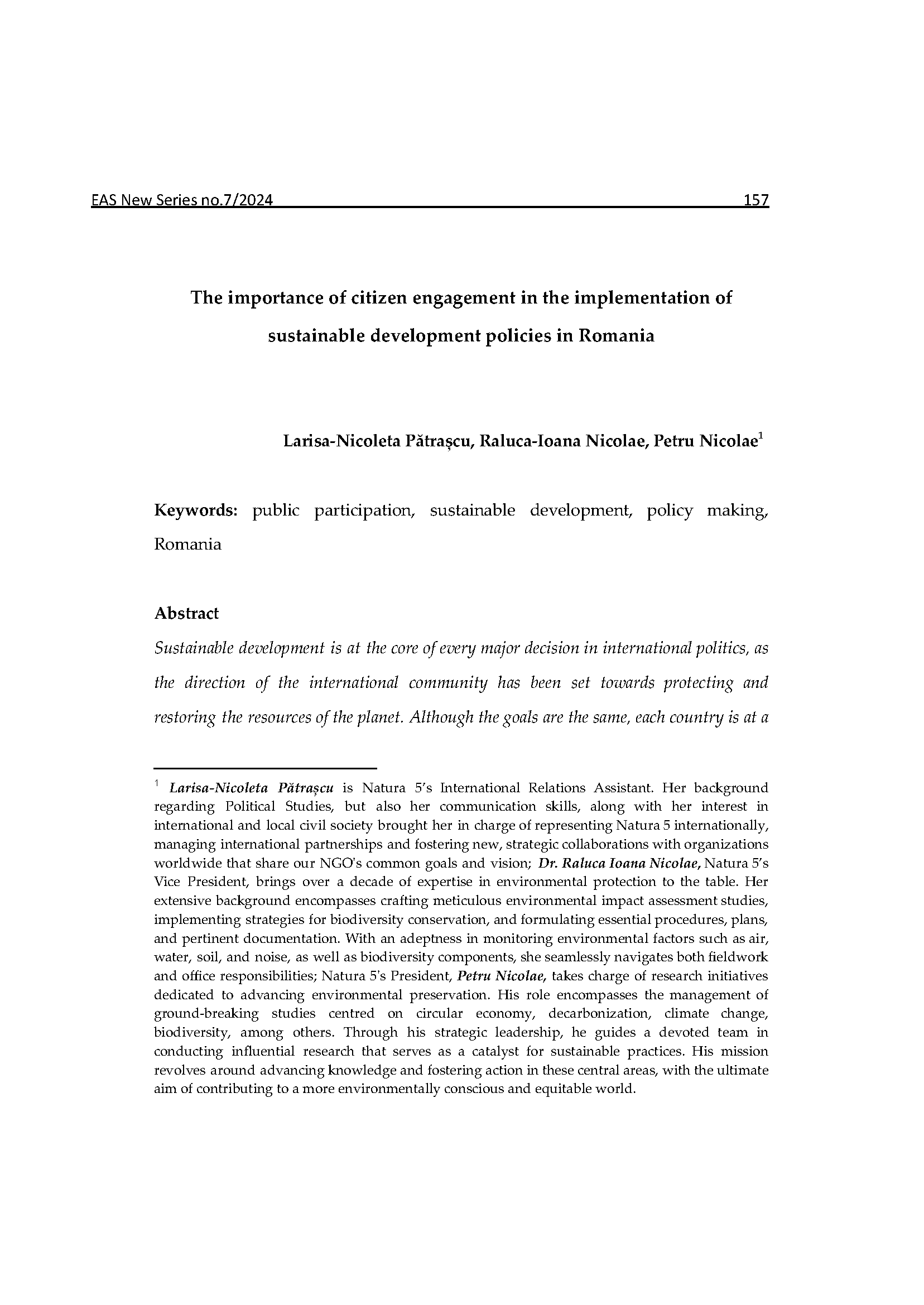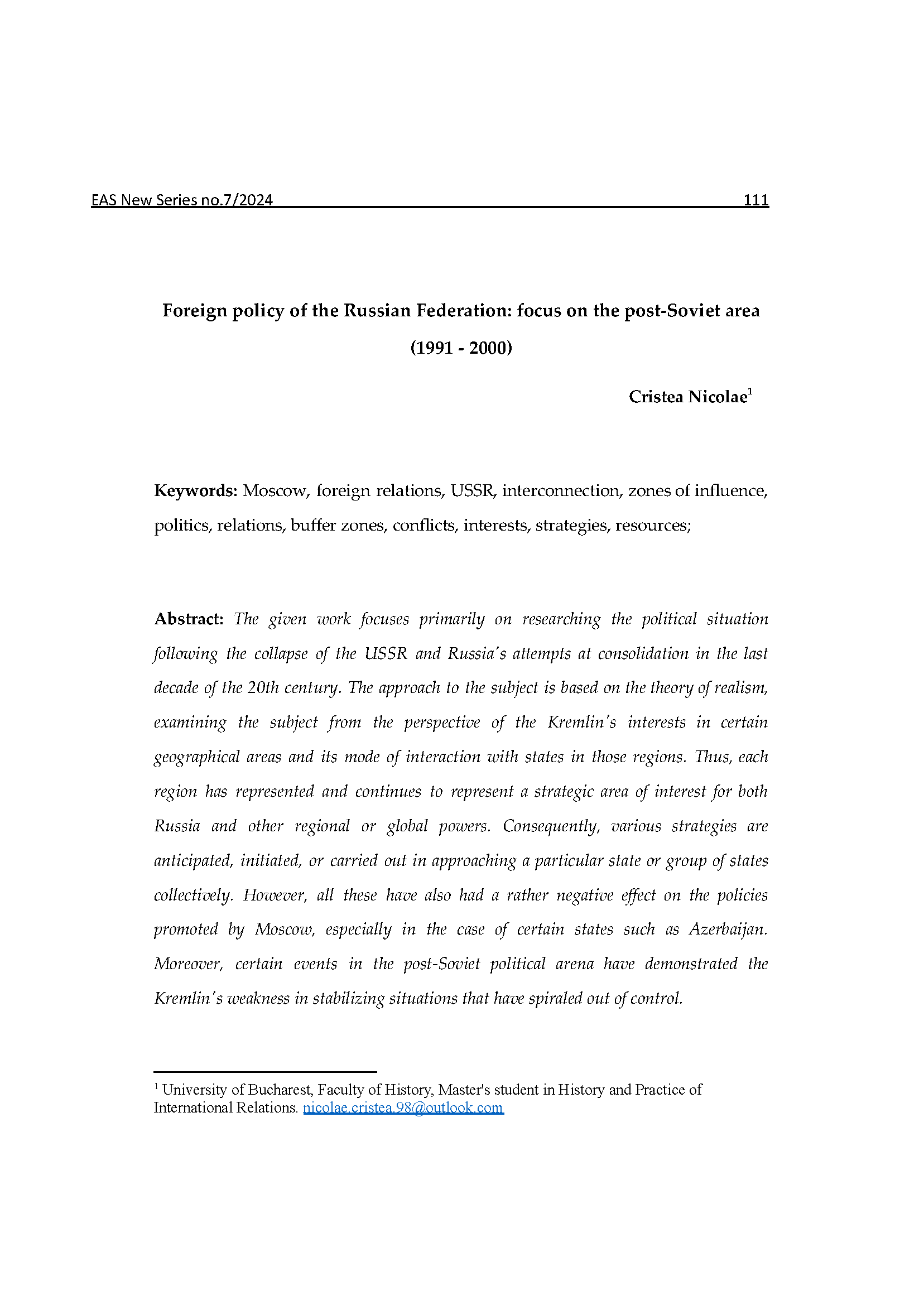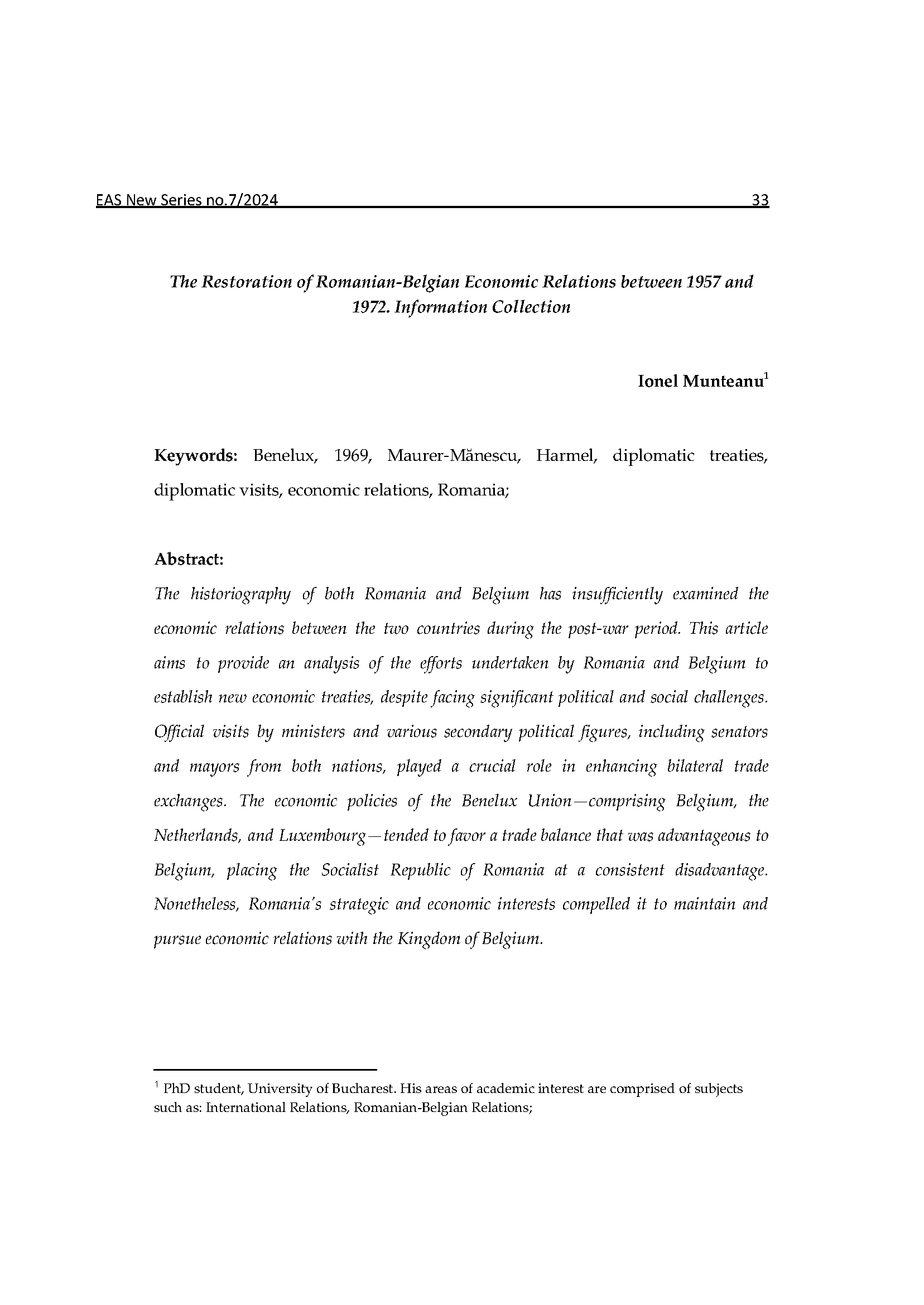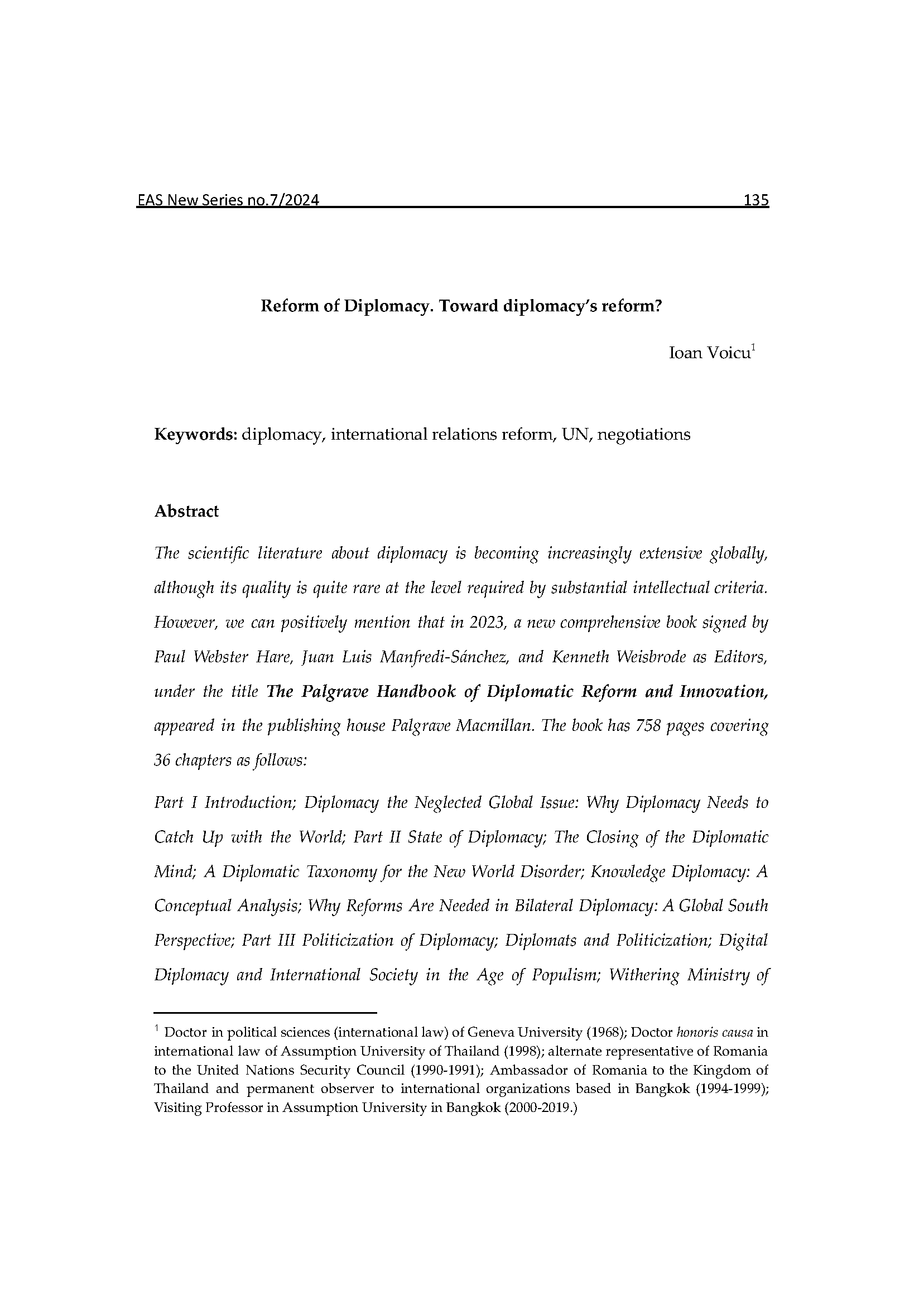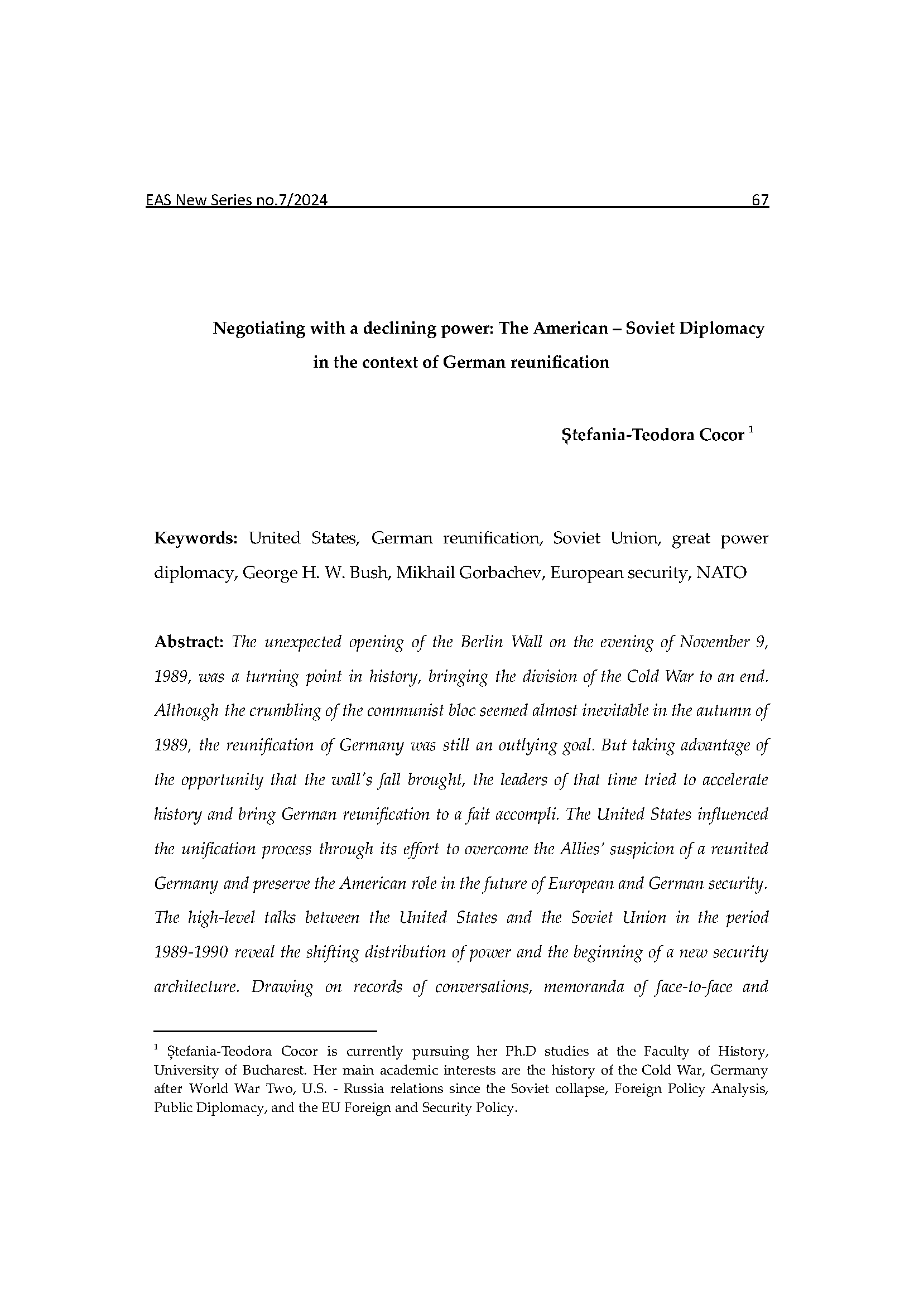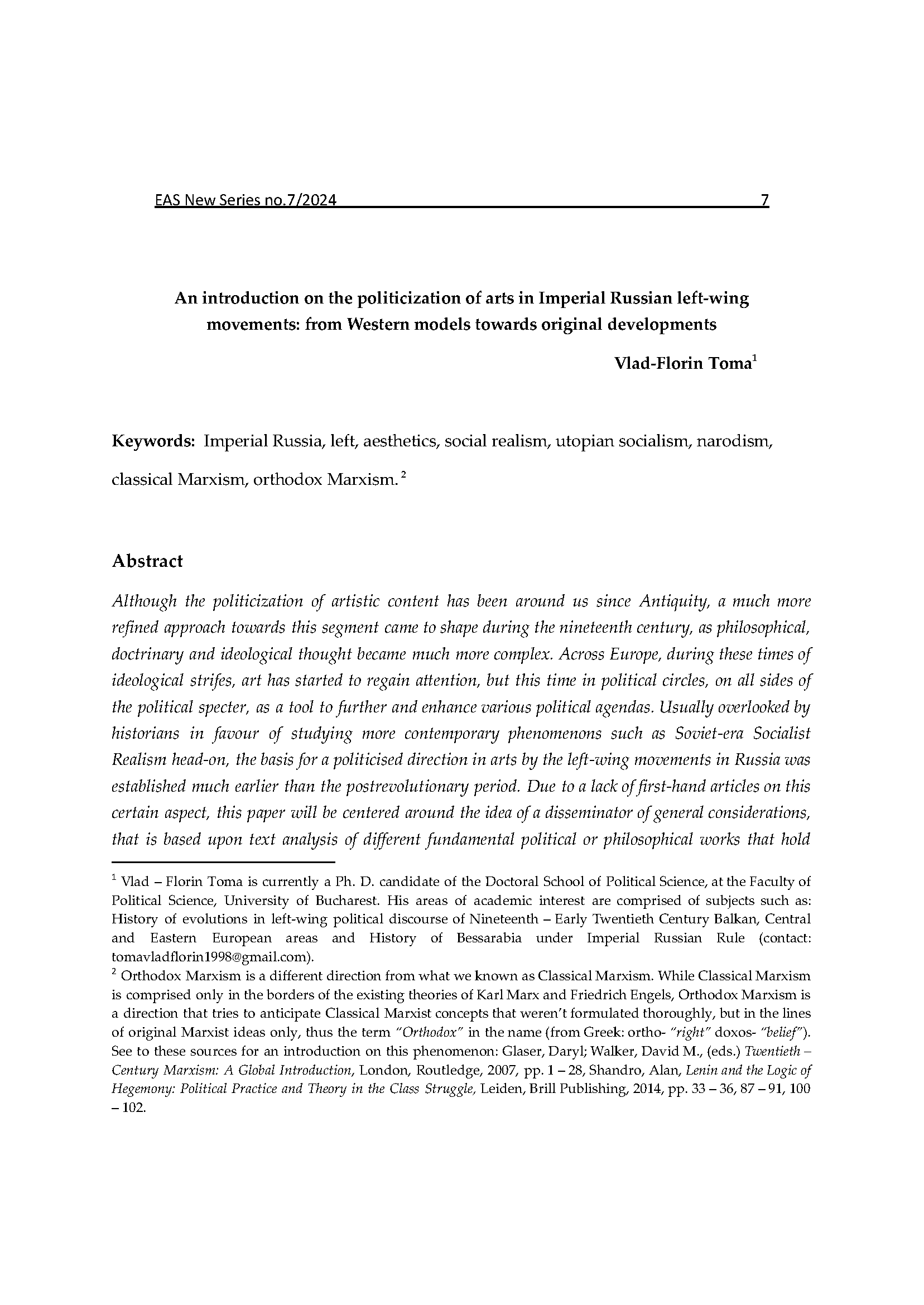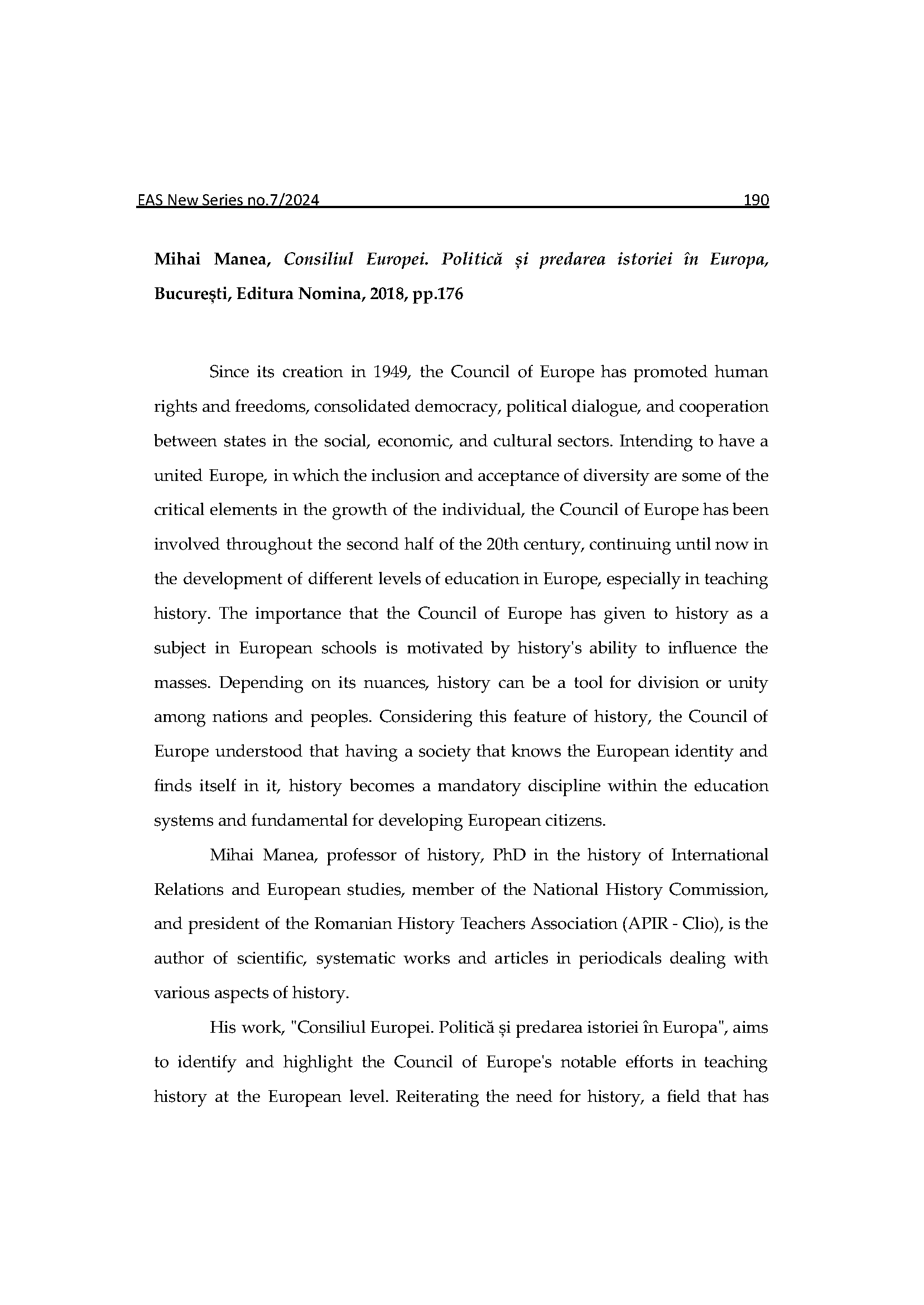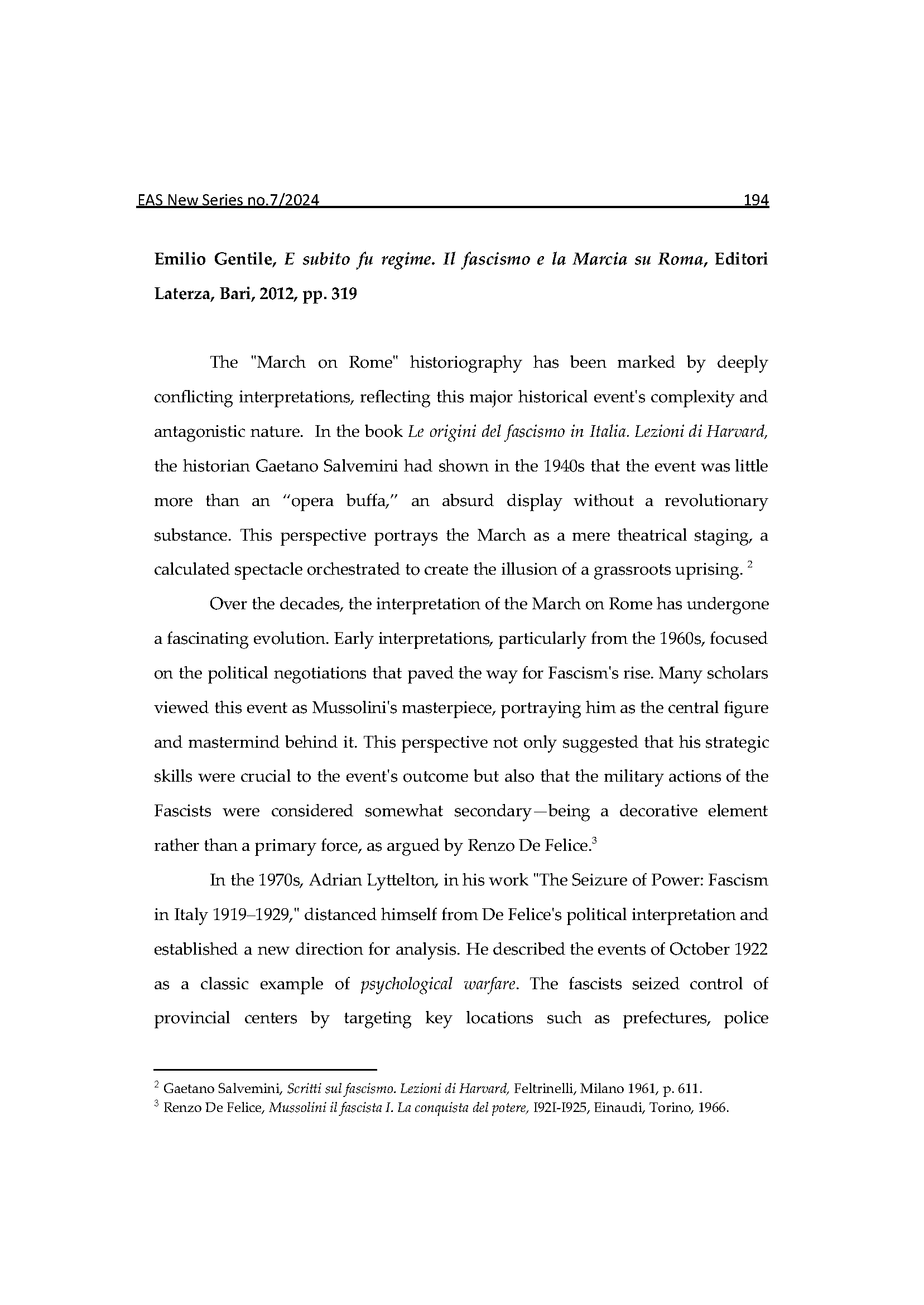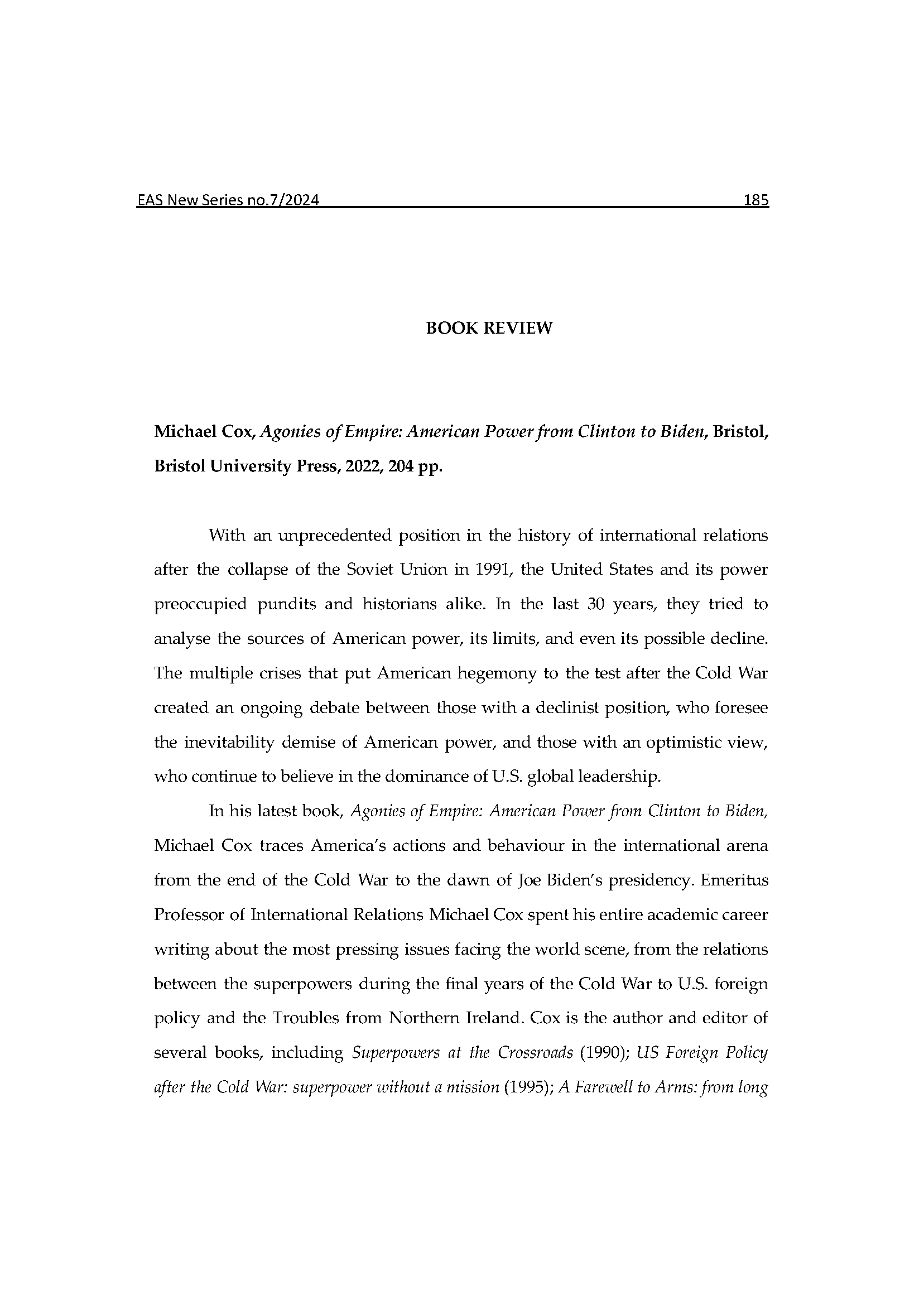About the Journal
Euro-Atlantic Studies (EAS) is an academic, peer-reviewed, and open-access journal, published by the Centre of Euro-Atlantic Studies „Prof.univ.dr. Constantin Bușe” of the University of Bucharest. Founded in 1998, the journal aims to make available to the scientific community and the general public the results of recent academic research in the field of International Relations.
The Journal also aims to provide help to authors to publish their papers conveniently and spread their research worldwide, stimulating academic debate in the field of social sciences. We try our best to ensure the novelty of each research manuscript being published in EAS.
Current Issue
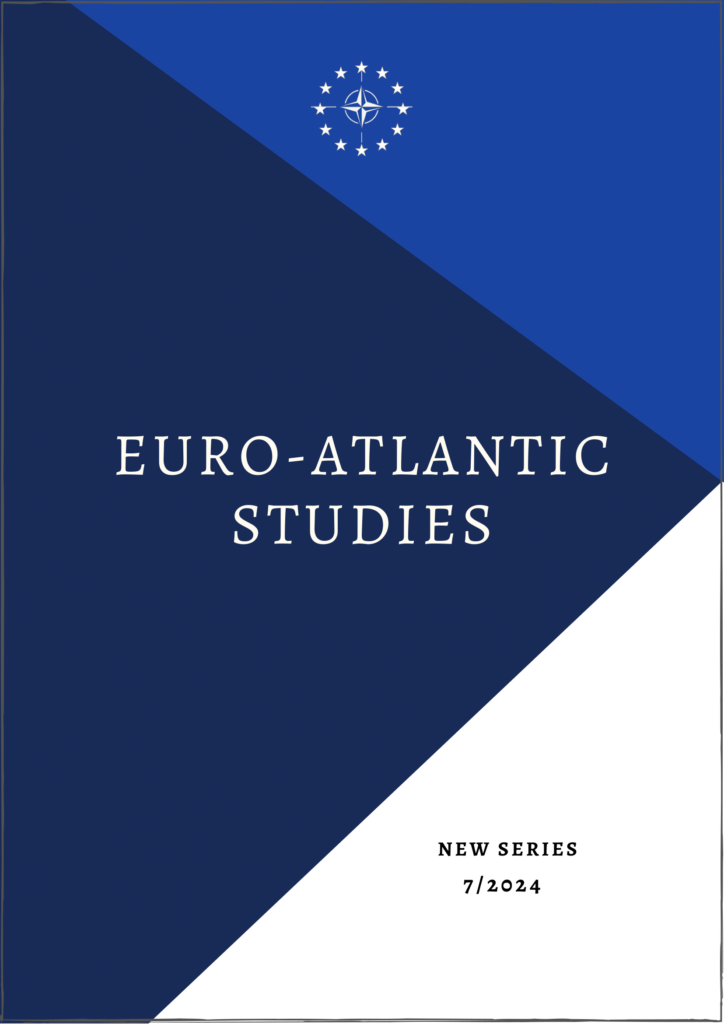
Euro-Atlantic Studies is published by the Centre for Euro-Atlantic Studies, Bucharest. The Centre is an academic body that owes no allegiance to a government or political agency. It does not hold opinions of its own. The views extended in this magazine are the responsibility of the authors.

